I have the following database structure (just showing the pertinent tables):
 I need to get a listing of all the elements in the table "Propietario" and each element must have a list of all its related elements in "Clave". Specifically, I need the field "CodigoClave" from "Clave".
I need to get a listing of all the elements in the table "Propietario" and each element must have a list of all its related elements in "Clave". Specifically, I need the field "CodigoClave" from "Clave".
Also, I need to be able to filter the results any of the fields.
This is what I've come up with so far:
int pageSizeP = (pageSize == null || pageSize == 0 || pageSize > 15) ? 15 : (int)pageSize;
int pageNumberP = (pageNumber == null || pageNumber == 0) ? 1 : (int)pageNumber;
var propietariosCount = context.Propietarios.Count();
var propietariosQuery = context.Propietarios
.AsEnumerable()
.OrderBy(p => p.Nombre).ThenBy(p => p.Apellido1).ThenBy(p => p.Apellido2)
.Select(p => new
{
Id = p.Id,
Nombre = p.Nombre,
Apellido1 = p.Apellido1,
Apellido2 = p.Apellido2,
NIF = p.NIF,
Claves = string.Join(", ", context.PropietariosFincas
.Where(pf => pf.PropietarioId == p.Id)
.Join(context.Expedientes
.Include(e => e.Clave),
pf => pf.FincaId,
e => e.FincaId,
(pf, e) => (e.Clave.CodigoClave + ((e.Clave.Alias == null) ? "" : " - " + e.Clave.Alias))
).Distinct().ToList())
// Getting an array of Claves would do;
// I could turn it into a string in the JS app
// But it's just as slow
});
if (criteriosBusqueda != "")
{
string[] aCriterios = criteriosBusqueda.Split(new string[] { "," }, StringSplitOptions.None);
CompareOptions compareOptions = CompareOptions.IgnoreCase;
if (aCriterios[0] != "")
propietariosQuery = propietariosQuery
.Where(p => p.Nombre != null)
.Where(p => p.Nombre.Replace("/", "__").ContainsIgnoreAccents(aCriterios[0], compareOptions));
if (aCriterios[1] != "")
propietariosQuery = propietariosQuery
.Where(p => p.Apellido1 != null)
.Where(p => p.Apellido1.Replace("/", "__").ContainsIgnoreAccents(aCriterios[1], compareOptions));
if (aCriterios[2] != "")
propietariosQuery = propietariosQuery
.Where(p => p.Apellido2 != null)
.Where(p => p.Apellido2.Replace("/", "__").ContainsIgnoreAccents(aCriterios[2], compareOptions));
if (aCriterios[3] != "")
propietariosQuery = propietariosQuery
.Where(p => p.NIF != null)
.Where(p => p.NIF.Replace("/", "__").ToLower().Contains(aCriterios[3].ToLower()));
if (aCriterios[4] != "")
propietariosQuery = propietariosQuery
.Where(p => p.Claves != null)
.Where(p => p.Claves.Replace("/", "__").ToLower().Contains(aCriterios[4].ToLower()));
}
var propietariosList = propietariosQuery.Skip((pageNumberP - 1) * pageSizeP).Take(pageSizeP)
.ToList();
var datosPropietarios = new
{
pageSize = pageSizeP,
pageNumber = pageNumberP,
recordsNumber = propietariosQuery.Count()
titulares = propietariosList
};
return Ok(datosPropietarios);
It works, but it's too slow (it takes several minutes). I've managed to make the initial query (the first page, unfiltered) fast by making recordsNumber = context.Propietarios.Count() but that breaks the pagination when filtering. And anyway, if I filter or if I go to a page near the end, it is again really slow.
How can I make the query faster? My guess is that the query is pretty much traversing all the tables, so I don't know if there's even a solution that doesn't involve changing the data model.